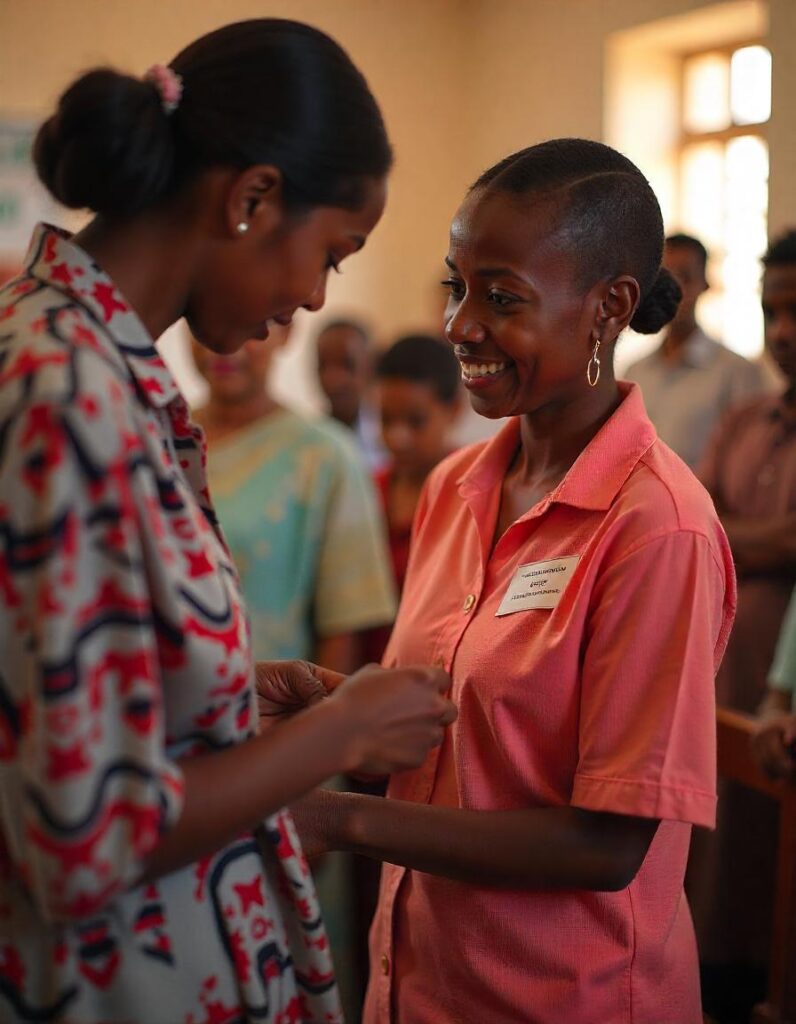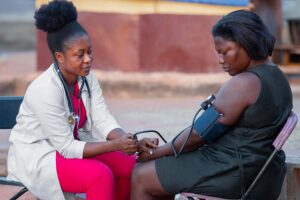Blood donation is often seen as a selfless act to help those in need, but did you know it has incredible health benefits for you too? In Nigeria, where the demand for blood products constantly outweighs supply, giving blood is one of the easiest ways to make a difference. But what if we told you that blood donation could not only save lives but also improve your health in profound ways? It’s a win-win for both you and those who depend on it.
The Healing Power of Blood Donation
When you donate blood, you’re doing more than just helping someone in a hospital bed. Blood donation has significant health benefits for the donor, and recent research suggests that regular blood donation can lower your risk of certain diseases while improving your overall well-being.
1. Improved Heart Health
Donating blood reduces the amount of iron in your blood, which can help lower your risk of heart disease. High iron levels are linked to an increased risk of heart attacks, strokes, and other cardiovascular diseases. By regularly donating blood, you are naturally reducing the risk of these conditions, as blood donation helps balance your iron levels. This is especially beneficial in countries like Nigeria, where heart disease is on the rise due to poor lifestyle habits.
2. Boosts Your Red Blood Cells (RBCs)
When you donate blood, your body works to replenish the lost cells. The process of regenerating red blood cells can boost your energy levels. Your body becomes more efficient at creating RBCs, improving oxygen circulation, which can leave you feeling revitalized. With each donation, you’re helping your body remain young and vigorous.
3. Blood Donation Benefits to Your Skin
This might sound surprising, but blood donation can enhance your skin’s appearance. By giving blood regularly, you eliminate old and damaged blood cells, and your body works to replace them with fresh, new blood. This can result in healthier skin that looks rejuvenated and youthful. Additionally, the process of blood circulation improves after a donation, promoting a natural glow.
4. Reduction in the Risk of Cancer
Studies suggest that regular blood donation lowers the risk of cancer. High iron levels have been linked to an increased risk of certain cancers, including liver and colon cancer. By donating blood and reducing iron stores, you’re decreasing your chances of developing these conditions.
5. Improved Liver Health
Excess iron in the blood can accumulate in the liver, leading to liver disease. Blood donation helps reduce iron levels in the body, promoting liver health. By donating blood, you’re supporting not only your heart but also your liver in the process.
Understanding Blood Donation: The Process and Key Terminology
Before donating blood, it’s important to understand the basic facts about the process and how it aligns with your own blood group, rhesus factor, and genotype. Here are some important considerations:
-
Blood Group: Your blood type (A, B, AB, or O) and rhesus factor (positive or negative) are crucial when donating. Blood donation centers match your blood type with recipients in need, ensuring compatibility.
-
Rhesus Factor: This is the presence or absence of the Rh protein in your blood. Donors with the Rh-positive factor are often in higher demand. Knowing your blood type and rhesus factor can help you determine how and where to donate blood.
-
Genotype: Your genotype can impact the suitability of your blood for certain recipients, making it important to know your blood characteristics before donation.
Plasma Donation and Platelet Donation – A Growing Need
While whole blood donation is incredibly important, there is also an increasing demand for plasma donation and platelet donation in Nigeria. Plasma, the liquid part of blood, plays a critical role in clotting, immunity, and maintaining blood pressure. Platelets, on the other hand, are essential for blood clotting, which can be crucial in cases of severe trauma or disease.
Oneus, a leading plasma center in Nigeria, offers safe and reliable plasma donation services, ensuring that every donor’s experience is smooth and beneficial. By donating plasma, you’re helping treat burn victims, patients with hemophilia, and those undergoing surgeries.
The Lifesaving Importance of Bone Marrow and Cord Blood Banking
Another critical aspect of blood donation is bone marrow donation and cord blood banking. By donating your bone marrow or choosing to bank your umbilical cord blood, you could help treat patients with leukemia, sickle cell anemia, or other life-threatening blood disorders.
In Nigeria, where diseases like sickle cell anemia affect a large percentage of the population, private cord blood banking has become a lifeline for many families. While there may be a cost of cord blood banking, the ability to store and use the stem cells in the future is invaluable.
Risks of Not Donating – Why You Should Give Blood
Not donating blood or plasma regularly can result in a scarcity of blood supplies, which directly affects those in need of transfusions during surgeries, childbirth, or accidents. With the demand for blood higher than ever, it’s crucial that each of us plays our part in ensuring a stable and available supply of blood in Nigeria.
By choosing not to donate blood, you’re indirectly risking the health of others and potentially contributing to unnecessary loss of life. Blood donation is easy, safe, and impacts many lives. Don’t wait for a crisis to make a change. Start now.
Book Your Blood Donation – Give Blood, Save a Life
With the increasing need for blood and plasma donations, Oneus in Nigeria encourages you to be a hero by donating blood. The blood donation process is simple, and each donation can save lives. Book your appointment at Oneus today and make a difference in someone’s life.
Give Blood, Save a Life – Book Your Donation Now! For more information, contact us at info@oneusng.com, or call +234 902 168 2822. Visit Oneus Blood Donation today to find places to donate blood and become a life-saving donor.
By donating blood, you’re not just helping others—you’re taking steps to improve your own health, while contributing to a healthier, safer community. Don’t wait. Be a donor today!




